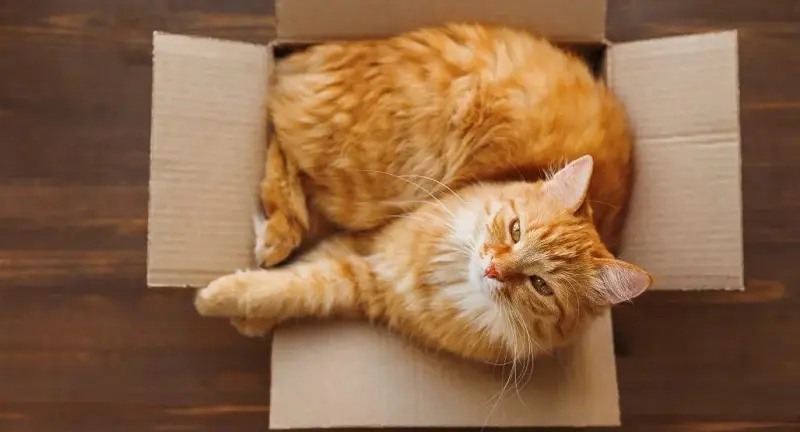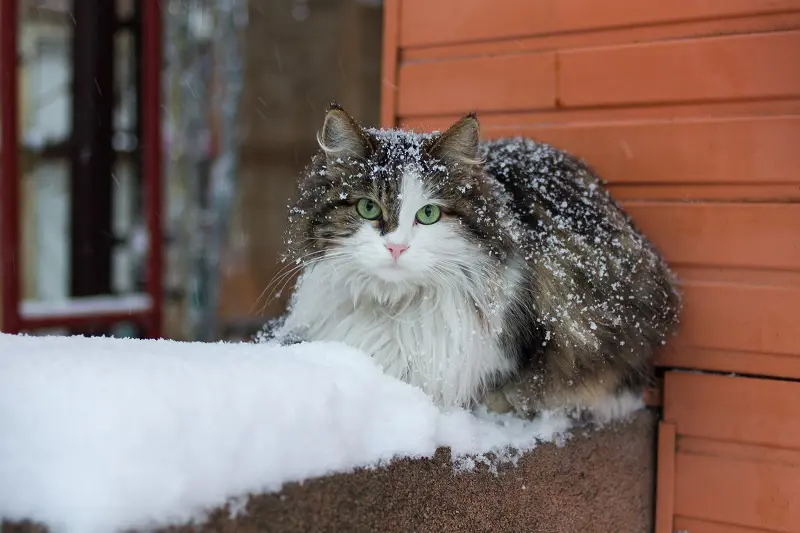Why Cats Run Away?
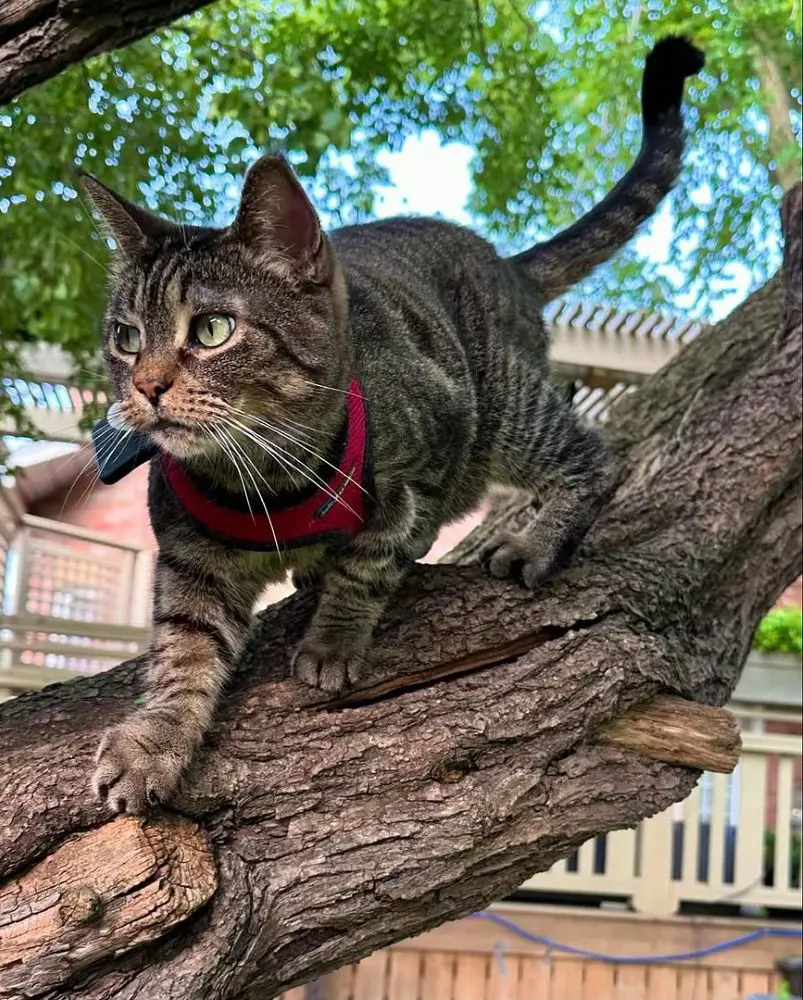
Getting a cat to stay indoors is a challenge most cat owners face, especially if their pet is used to roam outdoors. While dogs can be easily confined indoors, cats are excellent climbers who can squeeze through the tiniest of holes.
What is you wake up one day and realize that the cat is gone? Calling out their names and searching in the spots where the cat regularly visits are possible ways to look for the cat.
On the other hand, understanding the reason why the cat ran away can be helpful to pinpoint the cat's location. These are some reasons your cat may suddenly run away from home.
1. Curiosity And Exploration

Cats, as curious animals, love to explore their surroundings and areas nearby. In most cases, they'll be back in a few hours. But, sometimes, it can take more than that, possibly a few days for them to return.
Additionally, it's possible that your cat was simply exploring the neighborhood when it got distracted by a side quest and, eventually, got lost. While it might not be possible for pet parents to keep their cats locked indoors forever, giving them unsupervised outdoor access isn't a wise idea, either. Instead, you can build a catio or a temporary enclosure, that allows cats to walk around their backyards but stops them from leaving the premises.
2. Mating Instincts
During the breeding season, unspayed female cats often go to heat, once every 2-3 weeks. At the peak of the breeding season, these felines give in to their natural urges to breed and may even leave their homes to search for a suitable partner.
Although male cats don't go through the heat cycle, they can still recognize the breeding season and escape from their homes. After leaving their houses, the cats may roam for a few days to find a breeding mate.
In the US, a cat's breeding season usually lasts from March to September. Meanwhile, for locations in the Southern Hemisphere, the breeding season is from September to March.
3. Territorial Disputes

Being territorial animals, cats often mark their boundaries with urine and by spreading their scents over their supposed territories. Cats don't live in groups; so, they can be intimidated if even a single cat invades their territories.
If the original cat can scare off the invader, it keeps the territory to itself. However, if the other cat wins the fight, the original one might have to go into a self-imposed exile.
For cats, who were forced to leave their homes, returning isn't an option, unless the other is dead or incapacitated in any way. So, it can take some to return home after being chased out from their territories.
4. Stress or Fear
Fear and stress have become strong motivators for a cat to run away from home. Normally, when a cat is scared or anxious, it will search for a solitary spot to hide until the source of the stress is no longer active.
But, if the cat is scared or stressed by something inside the home, they may no longer feel safe there. For instance, cats can get stressed by occurrences like home renovation, fireworks, redecorations, and so on. When they are unable to find a suitable spot in the house to hide, cats might be prompted to leave the house and run away.
5. Hunting Instincts
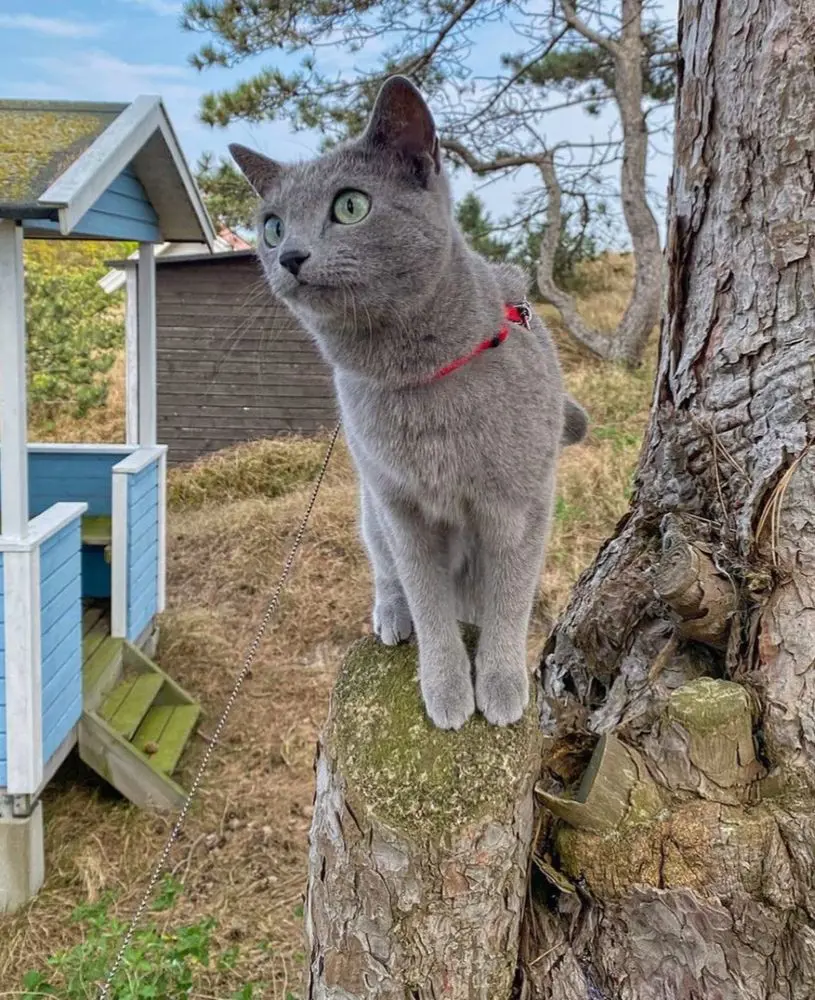
Cats are obligate carnivores who hunted small mammals and animals before they were domesticated. While they left their lives in the wild long ago, cats still retain the hunting instinct that kept them alive for thousands of years.
Even when they are provided plenty of food, cats will still try to hunt other small animals and birds they can get their hands on. Their strong hunting drive might also occasionally cause a cat to wander off from their homes in search of fresh prey.
As a pet owner, you may not be able to get rid of their hunting instincts; but, you can make it safer by using interactive toys that allow the feline to practice its killer moves. Besides keeping the cats inside the house, this technique will also keep them busy and engaged.
6. Accident or Injury
No matter how much you love your cat or try to keep them safe, accidents are bound to happen. Unlike dogs, cats can climb on high walls and enter places where humans can't. Therefore, once the cat gets out of the house, they are mostly alone and unsupervised.
Further, due to their small size, passerby drivers may not notice the felines until they are too close. This is why cats are so vulnerable to accidents. Similarly, cats are often the target of larger animals like dogs. While cats can rarely fight off a large dog, they use their superior intelligence to escape from the dog. However, sometimes, the dog can physically attack and injure the cat significantly.
When injured, the cat will look for a safe place to hide. In most cases, they'll return home within a day or two. But, if they don't, there's a likely possibility that the cat is too weak to come back home.
7. Pregnancy
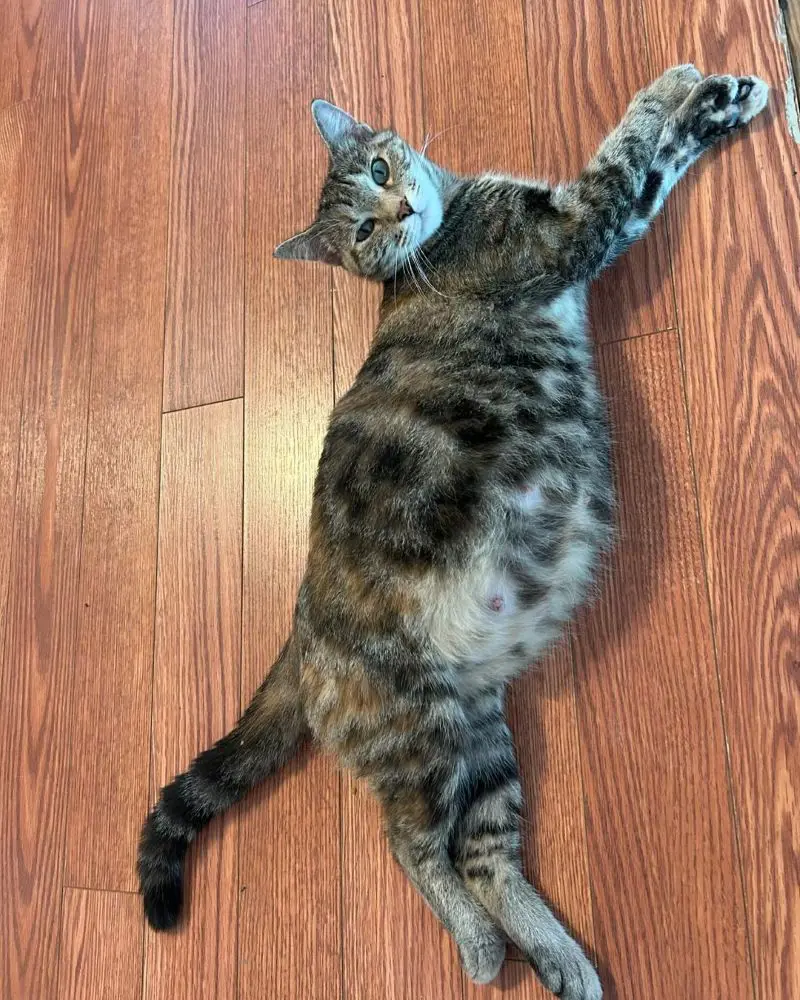
Female cats are often the most vulnerable when they are pregnant. Paired with undergoing hormone fluctuation, the cat might start feeling unsafe at home, or in the presence of humans.
A pregnant cat will usually look for a secluded spot to give birth to her kittens. As she is physically weak during the birthing process, staying outdoors during this time is extremely risky, not just for the mother cat but also for her kittens.
To combat this problem, it's wiser to create a safe space for cats inside your home. However, avoid keeping your pregnant cat at a high spot as it can add risk to the mother and her babies' health.
8. Feeling of Neglect
Cats can lose the desire to be a household member if they are constantly neglected or feel abandoned by their owners. Though they don't often show it, cats crave human attention, especially in the form of delicious treats. However, a cat owner can't always be together with their pet.
Lack of playtime or delays in serving food are common ways cats feel neglected by their owners. As a coping measure, many cats run away from their homes. While they may return at a later date, they'll run away if they feel no change in their owners' behavior.
9. Double Life

Does your cat disappear for days and come back home like it's not a big deal? Beware, your cat could be living a double life without your knowledge.
While dogs are fully loyal to their owners, cats don't necessarily feel the need to get tied down to a family. There have been several cases of cats living with two families at the same time, enjoying extra love and treats from their newer families.
Meanwhile, some cats form strong bonds with people outside of their families and may occasionally leave the premises to hang out with their new buddies. This trait is more common in cats that have regular outdoor access.
10. Illness
Sick cats have an instinctual behavior of running away from their homes. During their vulnerable phase, cats don't want a predator to see them as a food source. As a result, felines often look for a solitary spot that most people and animals are unable to find.
Cats may spend a few days in isolation until they're able to recover from the ailment. Meanwhile, some felines also run away when they know that they're about to die; it is an instinctive reaction that allows them to pass away peacefully.
Why Does My Cat Keep Running Away?

Cats have their unique triggers that cause them to keep running away, including curiosity, fear, or the desire for independence. By nature, cats are explorers, and the outdoors offers enticing stimuli such as new smells, sights, and potential prey. Even well-fed indoor cats may feel the urge to occasionally. roam.
Stress or fear might also cause a cat to run away. Loud noises, unfamiliar visitors, or changes in the household can make them seek safety elsewhere. If your cat is not spayed or neutered, hormonal urges might lead them to search for mates, increasing their likelihood of wandering far from home.
Another factor could be the cat's dissatisfaction with its living environment. Cats need mental stimulation and comfortable spaces. A lack of enrichment, like toys or climbing opportunities, may push them to explore beyond their familiar surroundings.
Why Cats Leave Home And Never Come Back?
Cats often leave home after sensing that they are nearing the end of their lives, a behavior deeply rooted in their instinctual survival mechanisms. In the wild, dying animals are vulnerable to predators, so they isolate themselves to minimize the risk of being attacked. This instinct remains in domestic cats, even though they live in a safer environment.
When a cat feels weak or unwell, its instincts may urge it to find a quiet, secluded spot away from potential threats; this behavior is not a sign of rejection or a lack of attachment to its home or owner. Instead, it reflects their deeply ingrained survival strategy to protect themselves and the group. Often, these hiding spots are challenging to locate, such as under dense vegetation, in garages, or even in neighbors' yards.
Additionally, cats are known for masking pain and illness to avoid appearing vulnerable. As their condition worsens, they may seek solitude, leading some to leave home entirely. Owners may misinterpret this as a sign that the cat doesn't want their care, but it is simply the cat following its instincts.
How To Stop Cats From Running Away?
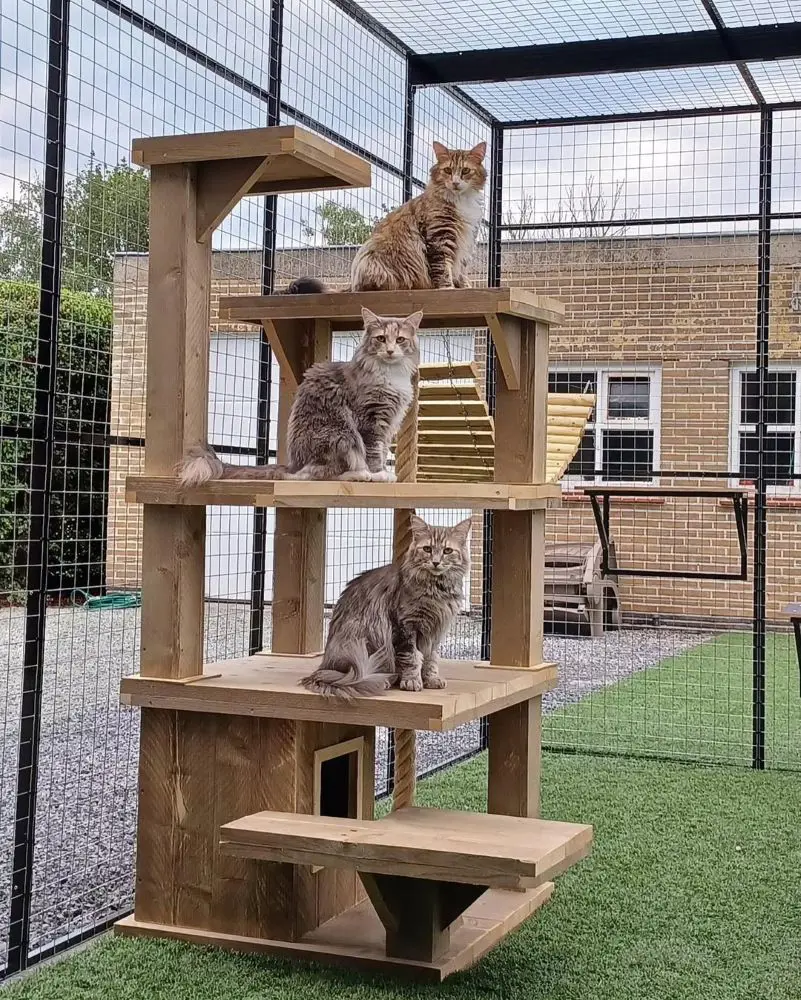
Trying to stop a cat from going outdoors might sound like a typical "it's for your own good" line from an overprotective parent. But, pet parents understand that life's not all about having fun or doing what you like. And, sometimes you need to be the bad guy to keep your pets alive.
There are techniques you can apply to keep them happy and satisfied, without having to let them outdoors. These are some measures to stop your cat from running away.
1. Provide A Window View To Outside
Keeping your doors and windows locked will only get your cat frustrated and resentful. As they get bored indoors, the feline can become destructive, often breaking apart your precious belongings.
Although providing outdoor access might not be an option, you can always give them a window view of the outside world. For instance, you can provide a comfy area to rest near the window. Also, you can hide treats and catnip near the window to keep them relaxed and distracted.
2. Neuter or Spay Your Cat
Although the science behind this is unclear, spayed or neutered cats have a significantly lower drive to go outdoors than unfixed cats. While an intact cat may attempt to run away every time you open the door, fixed ones are calmer along with a decreased urge to get outside.
While spayed or neutered cats will still try to run away occasionally, they are easier to handle due to their relatively calmer demeanor.
3. Build A Catio
A catio is like a patio, but for a cat. These structures have become popular in suburban homes with pets.
As the name suggests, a catio is an outdoor structure that keeps the cat confined to the premises while giving them the chance to explore the outdoors. While most cat owners build a catio to keep their cats from getting out, it has also proven to be valuable to protect a cat from predators, especially in regions where wild animals are known to frequent.
Catios are much better than a window as cats can experience the outdoors, rather than just seeing them. While it may cost you initially, the catio is a long-term investment that will keep your cat safe and happy in the long run.
4. Keep Your Pet On A Leash
Initially, cat owners may find it challenging to keep their pets on leash; but, with proper training and positive reinforcements, they will eventually learn to occasionally be on a leash.
It's virtually impossible to always keep your cat indoors and, at some time, they're bound to get outdoors. To counter this, devise a plan to regularly take your cats on supervised walks; using a leash will keep them from running away when they're outdoors.
As a pet parent, you should also make sure that the cat is not around when you're opening a door, or at least leashed.
Recent posts
Cats
How To Find A Lost Cat
You wake up one morning and notice that your cat is gone. This is a recurring scenario that many pet owners experience, particularly in cats who were previously feral. In normal circumstances, your cat will return in a few hours or the next day. Howe...
18 Low Maintenance Cat For Busy Owners
Adopting a cat as a busy owner can be hard as it requires a big commitment and care. There are several cats that do not require much effort and are perfect for those with hectic schedules. It is important to understand their grooming needs along with...
Why Do Cats Like Boxes
Anyone who has spent significant time around a cat is familiar with the purring creature’s love of boxes and other small spaces. Immediately after you remove an item from its cardboard container, your furry feline friend checks out the empty bo...
Cat Toe Beans: 10 Surprising Facts About Feline's Feet
Also referred to as digital pads, cat toe beans are by far one of the most adorable features in a domestic feline. While these soft beans look vulnerable, the pads are extremely handy in movements across rough terrains or other activities like climbi...
Do Cats Get Cold, How Cold Is Too Cold For Cats?
Cats are fascinating creatures with unique physiological and behavioral traits. While they are reputed for being independent and adaptable, it’s crucial to understand their limitations when dealing with cold weather. Cats are resilient but not ...
How Many Teeth Do Cats Have?
Cat teeth are important for survival and daily life because they help cats hunt, tear meat, and eat easily. Their teeth are viewed not only as functional but also as indicators of their overall health. Grooming is one function these teeth serve, alon...


